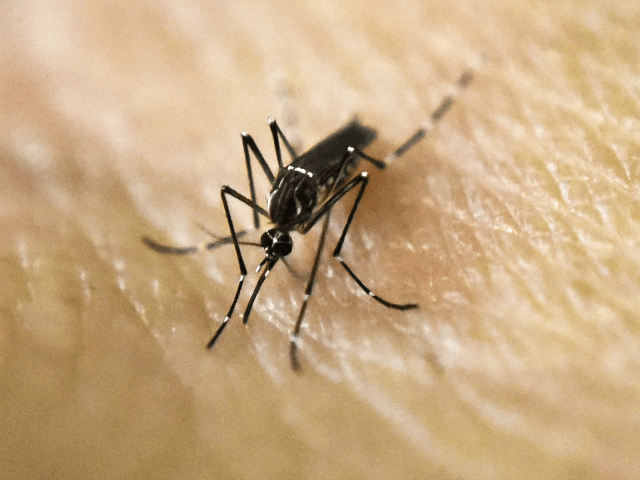In an op-ed, El Salvador Vice Minister of Health Eduardo Espinoza stated the government uses mosquito-eating fish to fight against the Zika virus.
Espinoza wrote in The New York Times:
The Salvadoran government has put in place measures for vector control, including water treatment, the use of window screens, and fogging and area sprays. Biological control mechanisms include mosquito-eating fish in home water tanks. These have been successful, building on the premise that the central effort should be to mobilize the whole society against the Zika-carrying mosquito.
Tech Times reported that restaurants and schools use the sambo fish in any container used for standing water.
“The fish eat the larvae of the mosquitoes and stop them from developing into breeding adults that spread the virus,” wrote Jan Dizon.
Aedes aegypti mosquitos carry the Zika virus. While primarily found in Africa, all but two nations on the Western Hemisphere boast significant populations. (Chile and Canada are the exceptions.) They also carry Dengue, yellow fever, and Chikungunya. Doctors found the disease in an infant during an autopsy, and numerous mothers reported symptoms.
Health worker Marielos Sosa said officials in La Libertad used the fish between 2012 and 2015. The experiment resulted with “zero cases of dengue” and “no cases of chikungunya and so far no cases of Zika either.”
“It’s easier to eliminate breeding grounds of mosquitoes than to limit people’s desire to be a mother or a father,” explained Julio Morales, director of the Unicentro hospital. “Killing the larva is fundamental. If people don’t understand that, we’re never going to stop this virus.”
Salvadorian officials have been urging women to avoid pregnancy due to alleged links between Zika and microcephaly. the country reported over 5,000 Zika cases in 2015 “and in the first weeks of 2016.”
“The recommendation is that people plan their pregnancies, that they avoid if at all possible to have babies this year,” stressed Espinoza. “This is the first time that we have suffered an attack of Zika virus, and the first attack is always the worst.”
Microcephaly occurs if the brain does not form properly in pregnancy or stops growing after birth. Children can suffer from seizures, developmental delays, intellectual disability, and feeding problems.
The Centers for Disease Control (CDC) stated the disorder is typically uncommon. Following the outbreak of Zika, however, Brazil has discovered over 4,000 cases and is diagnosing an average of 200 cases a week. In 2015, the country tracked over 2,400 cases, compared to the 147 in 2014.
The government has also employed fumigators to kill the mosquitos. Workers don masks and suits as they “go from house to house, knocking on the doors to drive out the mosquitoes.” Unfortunately, gang warfare dominates the country, which causes fear and mistrust within the public. Health workers cannot enter some locations. If they find a way in, most people do not open their doors.
Claudia Muñoz said teenagers and children “tag along behind health workers on their rounds and report back to gang leaders.” The gangs and the children believe the health workers are spies for competing gangs.
Health inspectors often find stagnant water inside houses they inspect. Muñoz said many neighborhoods lack fresh water, so residents will “store fresh water in buckets and barrels.” Inspectors discover mosquito larvae in most of the containers, too. The residents claim they try to kill the larvae.
“It’s a lack of education,” he claimed. “The problem is we’ve become so irresponsible we think the government has to solve all our problems. But people don’t want to collaborate and be part of the solution. That’s why, as a country, we’re not moving forward.”

COMMENTS
Please let us know if you're having issues with commenting.